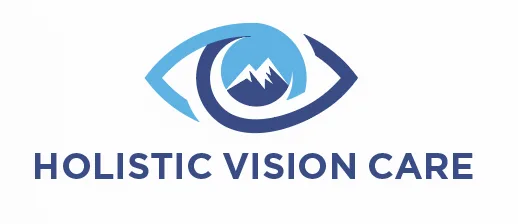Diabetic Retinopathy is a serious complication of diabetes that affects the eyes. It is caused by damage to the blood vessels in the retina, the light-sensitive tissue at the back of the eye. Over time, high blood sugar levels can cause these blood vessels to become weak and leaky or to grow abnormally, leading to vision loss or blindness.
The good news is that Diabetic Retinopathy can be prevented or managed with proper nutrition and lifestyle choices. This post will explore the connection between nutrition and Diabetic Retinopathy, and provide practical tips for people with diabetes to maintain healthy eyesight.
Nutrition and Diabetic Retinopathy
The link between nutrition and Diabetic Retinopathy is complex and multifactorial. Several nutrients, such as vitamins C, E, and A, zinc, and omega-3 fatty acids, have been shown to have protective effects on the eyes. Think of adding fish oil, beets and beet greens, swiss chard, kale and spinach into your diet. These nutrients have antioxidant properties that can help reduce inflammation and oxidative stress, which are two key mechanisms in the development of Diabetic Retinopathy.
In addition, a healthy diet that is low in saturated and trans fats, added sugars, and processed foods can help prevent and manage diabetes itself, which is the underlying cause of Diabetic Retinopathy. Eating a balanced diet that includes plenty of fruits, vegetables, whole grains, lean protein, and healthy fats can help stabilize blood sugar levels, reduce insulin resistance, and improve overall health and well-being.
However, it is important to note that there is no one-size-fits-all diet for people with diabetes. The best nutrition plan for Diabetic Retinopathy depends on individual factors such as age, gender, weight, activity level, and medical history. Therefore, it is essential to work with a healthcare provider or registered dietitian to develop a personalized nutrition plan that meets your specific needs and preferences. We offer nutritional guidance as part of our program for Diabetic Retinopathy and have helped many clients reduce their blood sugar levels and improve their vision.
Why is Diabetic Retinopathy so Destructive to the Vision
When you have excess sugar in the blood stream it acts effects the interior walls of the blood vessels. So every artery, vein and capillary is vulnerable to damage because of the circulating sugar in the blood. The extra molecules have very sharp edges and they cut and gouge the interior surface of the blood vessels, causing tiny ruptures to the insides of the vessels. Over time the body has more and more tiny cuts in the endothelium (blood vessels) to deal with and mounts a repair effort. Those repairs are like tiny scabs forming on the inside of a smooth pipe, they cause disruption in the flow of blood. If there are circulating cholesterol molecules they will congeal in these areas causing more disruption to the blood flow. Over time all the tiny impediments to the flow of blood begin to create challenges for the heart to pump blood through the system and the pressure begins to rise. Excess pressure causes difficulty for the tiny capillaries at the back of the eyes, resulting in damage to the retinal cells which are very, very sensitive and supported by capillaries that are only one blood vessel wide. As the nutrition in the blood becomes more difficult for the retinal cells to obtain, and as the waste products begin to build up because the blood cannot remove the excess in the cells as efficiently the cells begin to show signs of damage. This damage results in the vision loss that is associated with Diabetic Retinopathy.
Practical Tips for Maintaining Healthy Eyesight
Here are some practical tips for people with diabetes to maintain healthy eyesight and prevent or manage Diabetic Retinopathy:
1. Control your blood sugar levels. This is the most important step in preventing and managing Diabetic Retinopathy. Keeping your blood sugar levels within a healthy range (usually between 80-130 mg/dL before meals and less than 180 mg/dL after meals) can help reduce the risk of eye complications. This can be achieved through a combination of proper nutrition, regular exercise, medication (if prescribed), and monitoring your blood sugar levels regularly. In addition, Chinese Herbs have helped control blood sugar levels for centuries.
2. Eat a balanced diet. As mentioned earlier, a healthy diet that is low in saturated and trans fats, added sugars, and processed foods can help prevent and manage diabetes and its complications. Aim for a variety of colorful fruits and vegetables, whole grains, lean protein, and healthy fats such as nuts, seeds, avocado, and olive oil. Avoid sugary drinks, refined carbohydrates, and high-fat foods.
3. Get regular eye exams. Even if you have no symptoms of Diabetic Retinopathy, it is important to have regular eye exams at least once a year or as recommended by your eye doctor. This can help detect any changes in your eyesight early on and prevent further damage.
4. Manage your blood pressure and cholesterol levels. High blood pressure and cholesterol levels can also contribute to the development of Diabetic Retinopathy. Therefore, it is important to monitor and manage these conditions through a combination of lifestyle changes such as a healthy diet and regular exercise, and medication (if prescribed).
5. Quit smoking. Smoking can increase the risk of Diabetic Retinopathy and other eye diseases. Therefore, quitting smoking is one of the best things you can do for your eye health and overall health.
Final Thoughts
Diabetic Retinopathy is a serious complication of diabetes that can lead to vision loss or blindness if left untreated. However, with proper nutrition and lifestyle choices, it can be prevented or managed effectively. Eating a balanced diet that is low in saturated and trans fats, added sugars, and processed foods, and getting regular eye exams, can help maintain healthy eyesight and prevent further damage. If you have diabetes, work with your healthcare provider or registered dietitian to develop a personalized nutrition plan that meets your specific needs and preferences. Remember, taking care of your eyes is an important part of taking care of your overall health and well-being and can prevent more serious health conditions from forming.
You are welcome to reach out to us for more information or you can schedule a face-to-face initial consultation here.
Disclaimer
This website is for informational purposes only. By providing the information contained herein we are not diagnosing, treating, curing, mitigating, or preventing any type of disease or medical condition. Before beginning any type of natural, integrative, or conventional treatment regimen, it is advisable to see the advice of a licensed healthcare professional.





